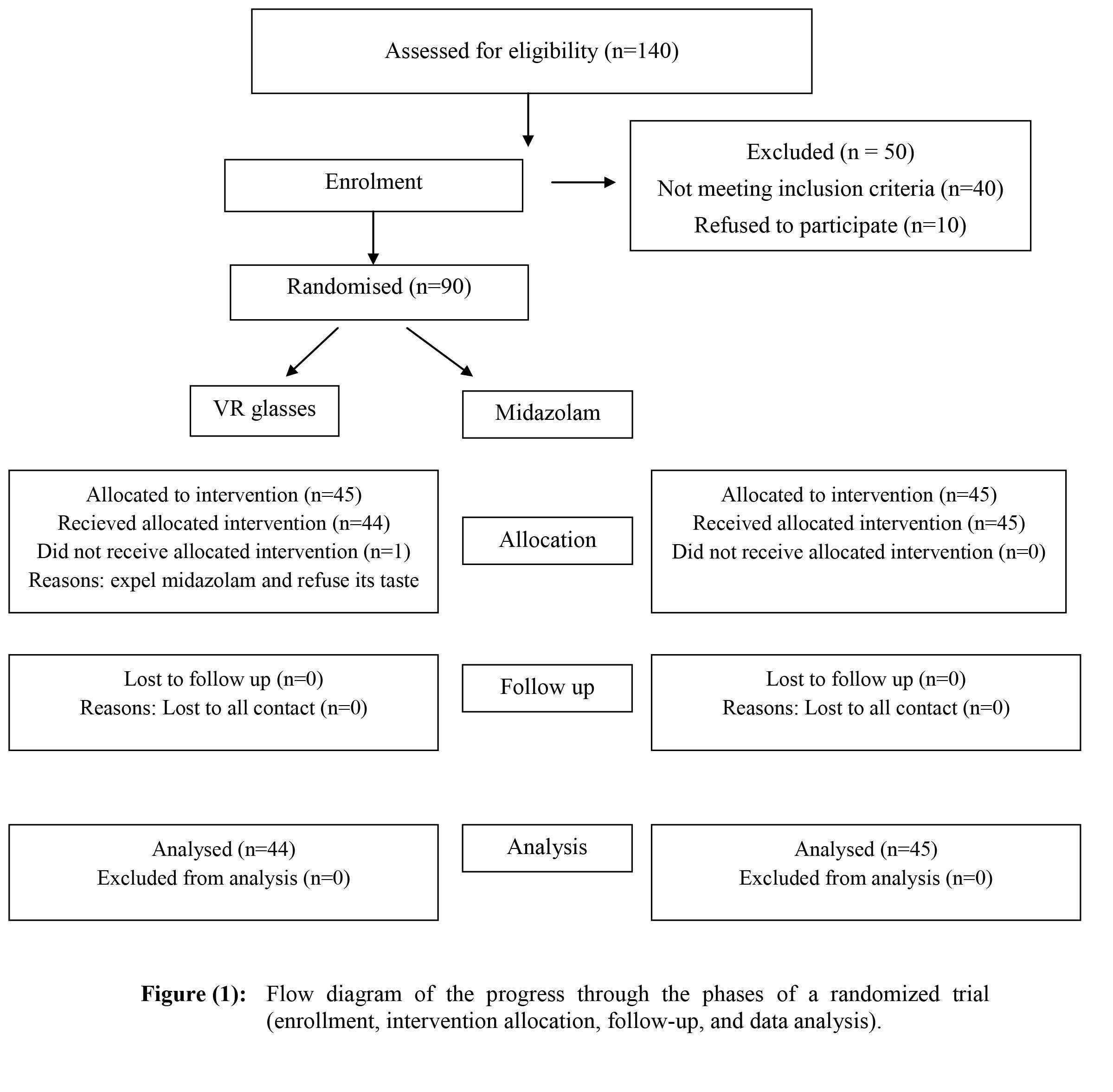
Virtual Reality Glasses Versus Oral Midazolam in Alleviation of Children`s Anxiety Prior to Dental Rehabilitation Under General Anesthesia: A Randomized Clinical Trial
2Pediatric Dentistry, Alexandria University, Egypt
3Anesthesia and Surgical Intensive Care, Alexandria University, Egypt
Background: The main objectives of premedication in children are to facilitate the separation from the parents, to reduce preoperative anxiety, to smooth out the induction of anesthesia and to lower the risk of postoperative behavioral disorders. The most common technique is sedative premedication with midazolam. The aim of the present study will be to evaluate the efficacy of virtual reality glasses showing 3D cartoon on anxiety and preoperative behavioral disorders versus oral midazolam premedication.
Methods: A randomized clinical trial was conducted on 90 children undergoing full dental rehabilitation. A total of 89 children were included in the analysis.After approval of the Ethics Committee. Informed written consent was obtained. Ninety children from 4 to 6years were randomly categorized into two groups. Group I received 3D cartoon VR Glasses,While group II were given 0.5 mg/kg oral midazolam. Postoperative behavioral disorders were evaluated using the Post-hospitalization Behavioral Questionnaire (PHBQ) after 24 hours and 14 days.Data were collected, analyzed using the appropriate statistical methods.
Results: Studied groups were comparable as regards demographic data (age, weight and sex). Recovery times were significantly shorter in group I than in group II (p=0.000). Postoperative behavioral changes was significantly better in group I compared with group II (P = 0.008). There was significant difference observed between the two groups according to parent separation(p=0.034).
Conclusions: Both pharmacological premedication and virtual reality glasses distraction are effective strategies for controlling preoperative childhood anxiety.virtual reality glasses distraction provide a safe alternative with more rapid recovery.
Powered by Eventact EMS